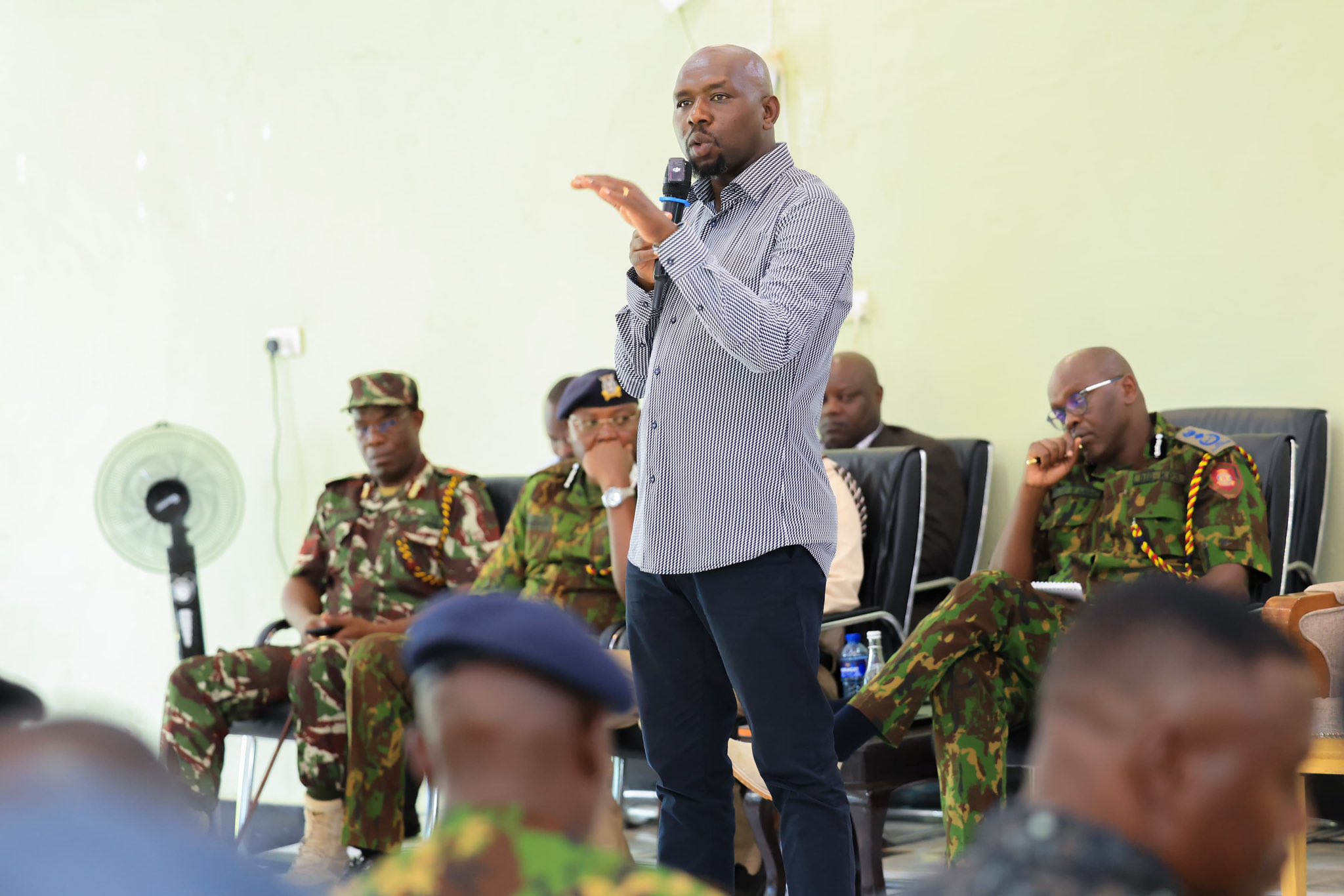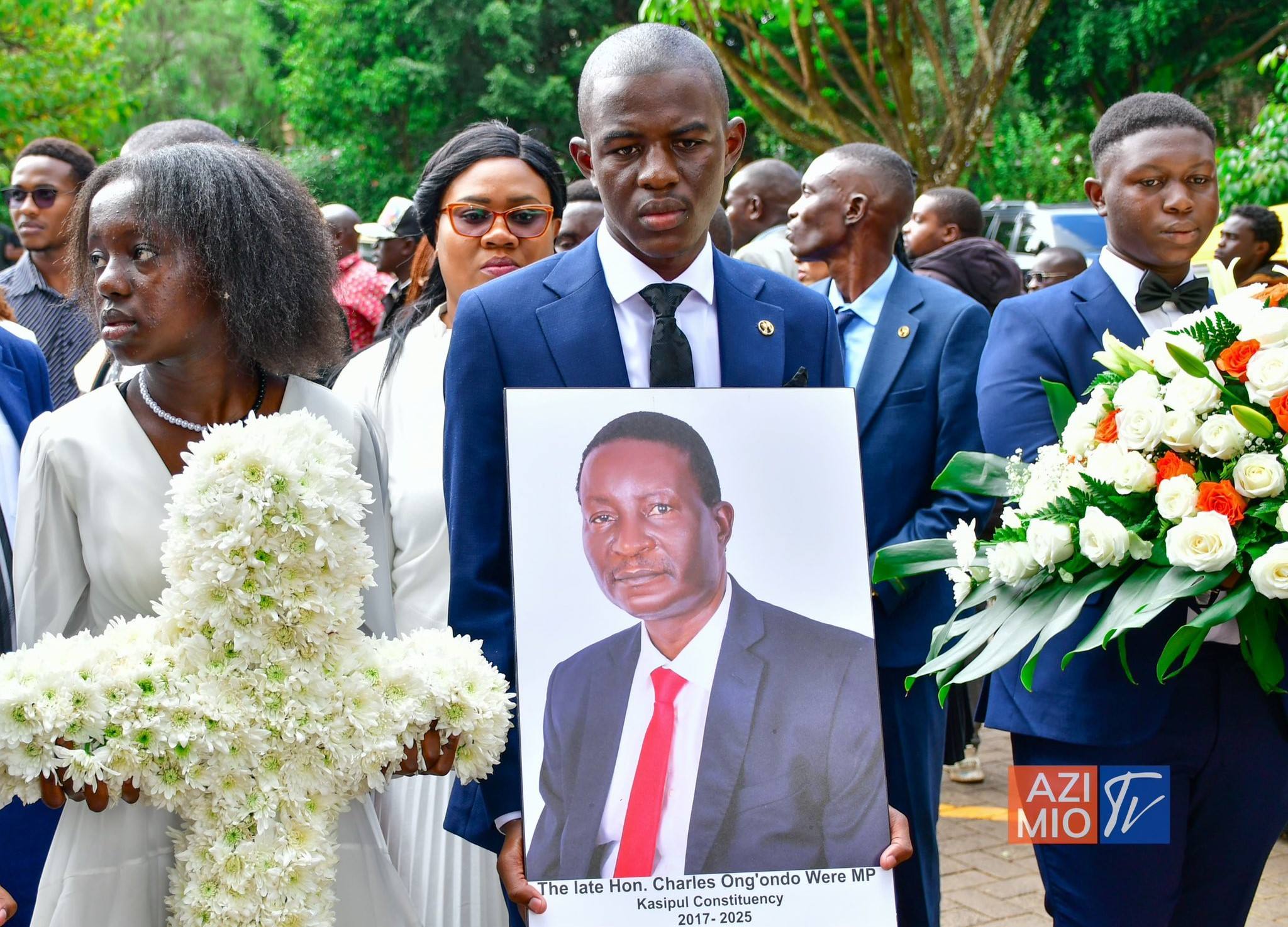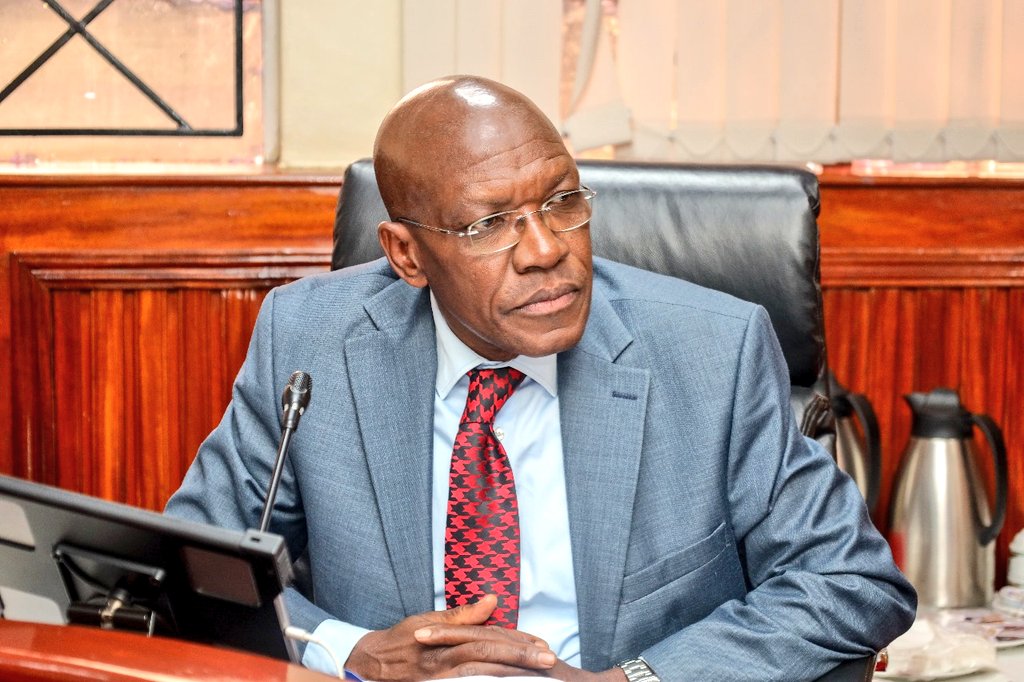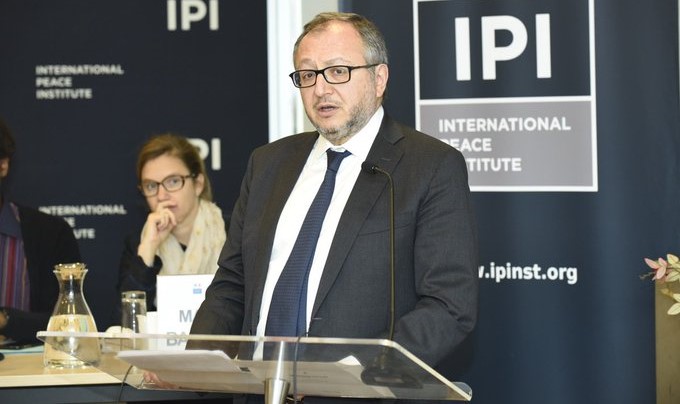Murkomen: Why police are solving MP Were’s murder faster, unlike other cases

Murkomen dismissed claims that police were selectively fast-tracking the case of Kasipul MP Charles Were, while stalling on investigations into unresolved disappearances.
Interior Cabinet Secretary Kipchumba Murkomen has blamed the lack of digital trails for the slow progress in resolving disappearance cases, arguing that such data gaps make it difficult for security agencies to pursue leads and apprehend suspects.
Speaking during an interview with Citizen TV on Wednesday night, Murkomen dismissed claims that police were selectively fast-tracking the case of Kasipul Member of Parliament Charles Were, who was shot dead on April 30, while stalling on investigations into unresolved disappearances.
More To Read
- Maraga demands Kenya summon Ugandan envoy over missing activists Bob Njagi, Nicholas Oyoo
- Kanja, DPP given seven days to produce missing security analyst Mwenda Mbijiwe
- Uganda High Court orders police to produce missing Kenyan activists Bob Njagi and Nicholas Oyoo within seven days
- High Court asked to compel State to produce missing security analyst Mwenda Mbijiwe
- Families seek help from KNCHR to trace Kenyan activists abducted in Uganda
- Uganda police deny holding missing Kenyan activists Bob Njagi and Nicholas Oyoo
Jeff Koinange, who hosted the show, questioned why the MP’s case had progressed swiftly, with 11 suspects already arrested, while no one has been held accountable for missing or abducted persons, particularly those linked to the June 25, 2024, anti-Finance Bill protests.
“It is very ironical that Kasipul Member of Parliament, Charles Were, he’s assassinated in the streets of Nairobi and the manner in which the DCI, the investigators, have gone and arrested one person, two persons, I think it’s up to 11 now, including the hit man, has been incredible. This is unprecedented. And yet, young kids were abducted a year ago, and nobody knows where they are. I mean, is it selective justice?” Koinange posed.
In response, Murkomen said the pace of investigations often hinges on the availability of evidence, particularly phone records and CCTV footage.
He insisted that many cases across the country are pursued with similar urgency, but public appreciation is often lacking.
“Nobody appreciates the work of the police until something goes wrong. But daily, there are many people arrested for murder, for robbery, for theft—all kinds of crimes. The police investigate very quickly. The issue of Honourable Were was almost like a state issue. The CCTV cameras quickly showed who was with him in Parliament, the motorbikes that were following him, and then, quickly, there was triangulation of phone calls that connected everybody. It was easy to arrest all these people,” he said.
He reiterated that police handle many other cases that do not make headlines.
 Family and friends during the memorial service for the late Charles Ong’ondo Were, MP Kasipul at Consolata Shrine in Nairobi on May 7, 2025. (Photo: X/Edwin Sifuna)
Family and friends during the memorial service for the late Charles Ong’ondo Were, MP Kasipul at Consolata Shrine in Nairobi on May 7, 2025. (Photo: X/Edwin Sifuna)
“There are many, many other cases that police investigate and charge people all over the country for drug trafficking, human trafficking, murder, assault, manslaughter, and robbery. I want to confirm that the complexity of missing person cases is especially the inability to trace the phone of the person who abducted them. It becomes more complicated,” he said.
Abduction cases
Murkomen noted that as of May, there had been 13 reported cases of missing persons in 2025, some of which were linked to budget-related demonstrations.
However, according to a May report from the human rights organisation Missing Voices, at least 55 cases of enforced disappearances were reported in Kenya in 2024.
The report further states that between 2019 and 2024, over 970 Kenyans were victims of enforced disappearances or extrajudicial killings.
Recently, President William Ruto assured the country that all Kenyans reported missing under suspicious circumstances had been safely reunited with their families, emphasising his administration’s commitment to ending enforced disappearances.
Other Topics To Read
- Headlines
- National
- extrajudicial killings kenya
- enforced disappearances kenya
- police abductions
- Abducted activists
- kenya abductions
- abductions kenya
- Kasipul MP Charles Ong’ondo Were
- Charles Were assasination
- Were's murder
- Murkomen: Why police are solving MP Were’s murder faster
- unlike other cases
He made the remarks during a joint press conference with Finnish President Alexander Stubb, who was in Kenya for a three-day official visit. President Ruto stated that the government had taken decisive steps to address the issue and prevent future occurrences.
However, his comments sparked public outcry, with families of missing persons insisting that they had not been reunited with their loved ones and had received no official communication regarding their whereabouts.
During the interview, Murkomen defended the President’s statements, arguing that the legal classification of such cases evolves with investigation.
“Well, actually, the real technical word is ‘missing persons’ because in the first instance, nobody reports an abduction. Abduction is when you now find the person who is culpable. It’s like when you find somebody dead—you say someone has been killed, but whether it’s murder or manslaughter is only established through court,” Murkomen said.
“The President could not have lied to the public because the truth is that there are reports of missing persons. In the last seven years, there have been about 700 missing persons reported. Last year alone, there were about 123 cases, and this year, about 13 so far. It’s only investigations that will reveal whether someone was abducted or fled the country.”
He cited a case he had addressed in Parliament involving pastors trafficked out of Kenya, explaining that such incidents initially fall under the category of missing persons until investigations determine otherwise.
“So when the President said he doesn’t want to hear about abductions, he meant it. There were reports—especially late last year and early this year—of about five young people who said they were abducted, confined, and later released,” he said.
Murkomen acknowledged the anguish families continue to experience nearly a year after their relatives disappeared.
“I have seen very painful stories. I personally met one of the mothers. We had a 20 to 30-minute conversation. You could feel the pain of a parent unable to find their child. It pains me,” he said.
He pledged to continue pushing security agencies to intensify their efforts to trace the missing.
“In the case of Nakuru, I promised the mother I would follow up—and I did. Even though Brian has not been found, the officers suspected of having arrested him from the Kenya Wildlife Service have been charged in a court of law,” he said.
The CS also pointed to the Kenya Kwanza administration’s campaign promise to end extrajudicial killings, saying the government remains committed to that pledge.
“This was in our manifesto. We were campaigning when bodies were being found in the Yala River, forests, and rivers—mutilated bodies. The President made a written commitment to end this. There is no government policy to terminate lives extrajudicially,” he said.
He further cited a previous case involving a missing MCA from Wajir who was later discovered alive on a farm.
“Everyone had believed the MCA was dead. Thankfully, he was found. As to who was involved, that’s still under investigation,” he said.
Murkomen reaffirmed both his personal and official stance on the matter, insisting that those behind abductions will be held accountable.
“As Interior Cabinet Secretary, as a lawyer, as a parent, as a father, I take seriously any act that would suggest the Government of Kenya uses extrajudicial means. There is no such policy. I will continue urging the DCI to find the missing. Our National Police Service, while supported by government policy, must remain accountable to Kenyans and to the Constitution,” he said.
Top Stories Today













































